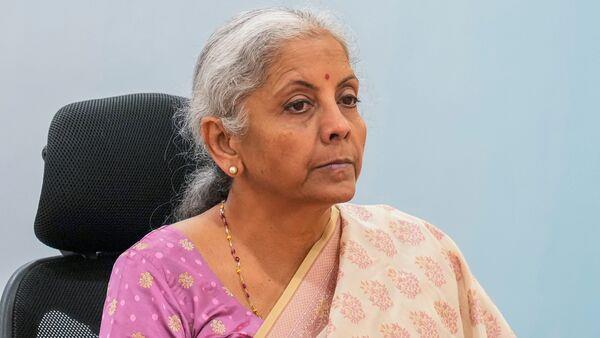
'Unified Pension Scheme Is New, Not Rollback Of NPS As Claimed By Congress,' Says Finance Minister Nirmala Sitharaman
The finance minister also accused the Opposition Congress party of spreading misinformation on the same.
Also Read | Bengal Bandh: BJP calls for 12 hr bandh as rally for Kolkata rape turns violent 'Not a Rollback'“It is not a rollback... it is different from OPS and NPS . It is clearly a new package. UPS is better and will satisfy most government employees. It is tailored in such a fashion that every calculation fits and even the government is not burdened too much,” said Sitharaman.
She expressed hope that most of the states would adopt UPS“as it has a lot of benefits for employees”.
Also Read | Jan Dhan: 10 yrs, 53 cr accounts, ₹2.31 lakh crore deposits, PM Modi post & more 'Pension Scheme Improved'On allegations by the Congress that the Centre has taken a U-turn on the pension scheme , Sitharaman replied that the government has improved the pension scheme which is not a U-turn.
Senior Congress leaders have said going back on OPS would be foolhardy because of obvious challenges it posed, the report noted.
“These days Congress makes comments without doing comprehensive study, which was not the case earlier. They have just become a naara-driven or sloganeering-driven party,” she added.
Sitharaman also defended past decisions such as the restoration of indexation benefits as part of long-term capital gains tax (LTCG), terming it as“tweaking” and“not a rollback”.
Also Read | Bank Holidays in September 2024: Check the full list here Details on UPS- The central government has announced UPS for 23 lakh employees. It was approved by the Union Cabinet on August 24. UPS can be availed only by those central government employees who are currently subscribers of the NPS. UPS guarantees employees 50 per cent of their average basic pay over the last 12 months before retirement as a pension for a minimum qualifying service of 25 years against a market-returns linked payout under the NPS . Further, the pension will be proportionate for a lesser service period of up to a minimum of 10 years. Also, assured pension of ₹10,000 per month on superannuation after a minimum of 10 years of service. The scheme has been brought out to address the concerns of government employees over NPS, which came into effect from January 1, 2004.
Under OPS (effective before January 2004), employees got 50 per cent of their last drawn basic pay as pension. Employees, under the OPS , were not required to make any contribution. They, however, contributed to the General Provident Fund (GPF). The accumulated amount, along with interest, was paid to the employee at the time of retirement.
Under the NPS, the employer contribution is 14 per cent, and the employee contribution is 10 per cent. However, the eventual payout depends on the market returns on that corpus, mostly invested in government debt.
However, as the NPS was less attractive than the OPS, several non-BJP-ruled states decided to go back to the old pension scheme, which offered a DA-linked benefit.
This prompted the Centre to constitute a committee in April 2023, under former Finance Secretary and now Cabinet Secretary-designate T V Somanathan to suggest improvement in the NPS architecture.
Unlike the old pension scheme, UPS is contributory in nature, wherein employees will be required to contribute 10 per cent of their basic salary and dearness allowance while the employer's contribution (the central government) will be 18.5 per cent.
(With inputs from PTI) Legal Disclaimer:
MENAFN provides the
information “as is” without warranty of any kind. We do not accept
any responsibility or liability for the accuracy, content, images,
videos, licenses, completeness, legality, or reliability of the information
contained in this article. If you have any complaints or copyright
issues related to this article, kindly contact the provider above.


















Comments
No comment